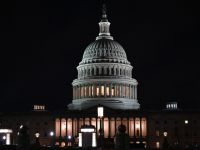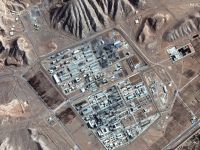One of the leading members of the opposition in Lebanon's outgoing parliament announced Sunday he was withdrawing from the forthcoming legislative elections because the results were already known and "there is no chance of change."
Najah Wakim, known as the enfant terrible of the outgoing parliament, said at a news conference "the artificial electoral alliances imposed by the decision-makers remove any chance of change, make the election process sterile and give no margin of free choice to the voters."
Saying the results of the upcoming elections "are known in advance," Wakim said his Movement of the People political group had decided not to stand candidates "while reaffirming its commitment to following democratic political action by other means."
Wakim, who is particularly popular among young people, made an electoral breakthrough four years ago against a powerful coalition led by Rafik Hariri, who he bluntly accused of mixing business with politics.
But despite the change of government, Wakim refused to give his loyalty to Prime Minister Salim Hoss, accusing his government of being worse than its predecessors.
Three main Christian parties already said they would boycott the elections: the Free National Current of former prime minister General Michel Aoun, the National Liberal Party of Dory Chamoun, and the banned Lebanese Forces movement, whose leader Samir Geagea has been in prison since 1994
In a statement Wednesday, they condemned what they described as "an unjust election law," "constituencies drawn up with favoritism," "flagrant Syrian interference in alliances and choice of candidates" and "meddling with the voting process with the results known in advance."
The three groups boycotted the two previous parliamentary elections, in 1992 and 1996.
The elections are due to be held on two separate days. Voters in north Lebanon and Mount Lebanon, near Beirut, will vote August 27th, while the three other constituencies, Beirut, the Bekaa valley in eastern Lebanon, and the south, will vote September 3rd.
A total of some 2.7 million Lebanese are eligible to vote for the single chamber parliament, which has 128 deputies shared between Muslims and Christians, and is elected for four years - BEIRUT (AFP)
© 2000 Al Bawaba (www.albawaba.com)







